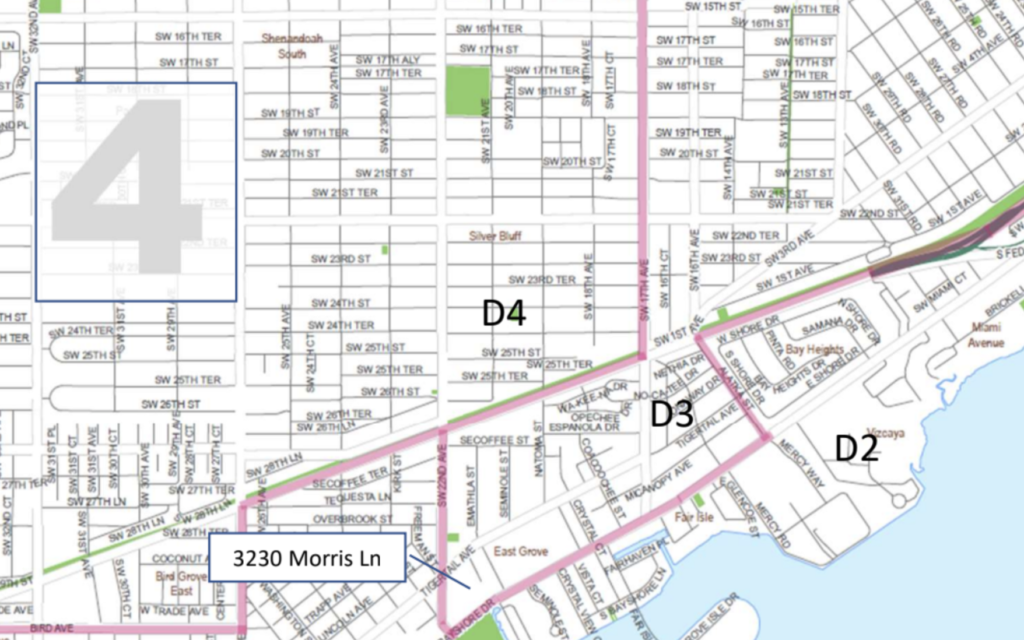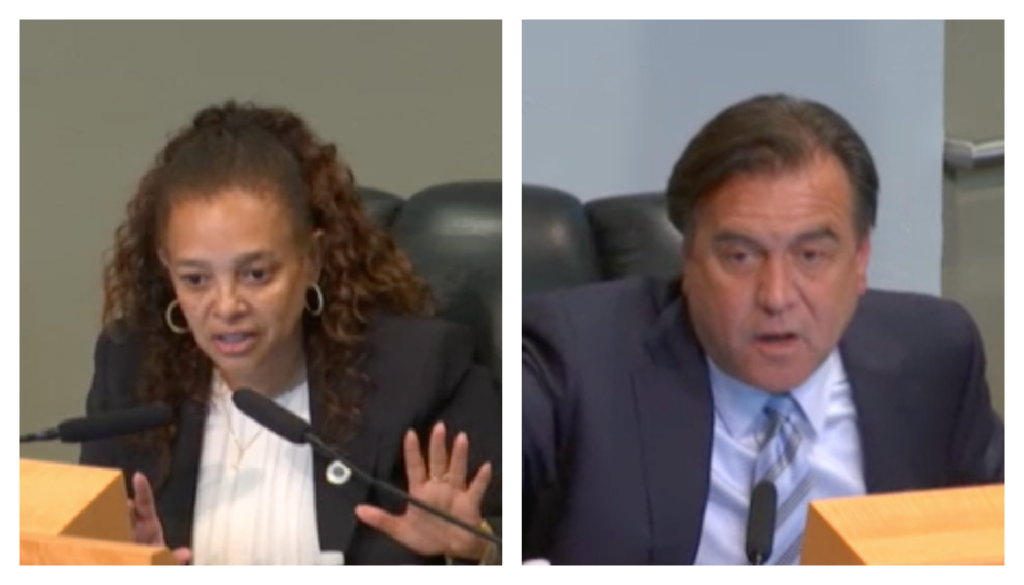What the hell happened?
People are still asking themselves that after last week’s special meeting in Miami to give final approval to the redistricting.
It looked like the residents who had begged to keep Coconut Grove together in the new map had won. It seemed, from the meeting before last week’s, that they got their message across to keep the all of historic neighborhood in District 2.
Miami Commissioner Manolo Reyes agreed to give back the West Grove section that was drawn into District 4 and Commissioner Joe Carollo abstained from voting on a map that goes out of its way to carve his home into his District 3.
The only thing in contention was the River Wharf, which both Commissioners Christine King and Alex Diaz de la Portilla wanted.
Or that’s what everyone thought. But it was too good to be true.
Read related: City redistricting falls apart again over border fight on the Miami River
On Thursday, Reyes showed his loyalty to The Three Amigos alliance, and King, the only black commissioner, sold out the Black Grove for the Wharf. It happened when (read: because) Carollo came back to the dais for the final city commission redistricting meeting — and all hell broke loose.
“Upon consideration and consultation I have been informed that I am obligated by Florida law to vote oh pending matters unless I have an actual conflict,” Carollo said in a statement before it began. “I do not have a conflict nor am I aware of any real conflict.”

Carollo was referring, of course, to the fact that his vote — and it was a 3-2 decision — approved a map that very carefully goes out of its way to carve his $2.8 million Morris Lane house into his district. The commissioner moved to West Brickell and then Little Havana so he could run and serve in District 3. Because there is no way he would get elected in District 2. He might not be able to run again in District 3 because of term limits — even though las malas lenguas say he’ll put his wife Marjorie on the ballot. But by moving back into his house he can protect it from lawsuits. And he immediately gets the benefit of a homestead exemption on his taxes.
Who informed him that he had no conflict? It wasn’t the Miami-Dade Commission on Ethics and Public Trust. “Neither Commissioner Carollo nor any member of the City of Miami Attorney’s Office requested a voting conflict opinion regarding this matter,” said Ethics Commission Executive Director Jose Arrojo.
City Attorney Victoria Mendez said there were “no documents responsive” to my requests when I asked if she gave the commissioner an opinion.
Commissioner Ken Russell’s motion was seconded by King just to get a discussion. It died, however, 4-1 when nobody voted for it but Russell. Then Diaz de la Portilla very aggressively pushed the vote for the original map, with the Grove in three parts — giving Carollo back his house.
Read related: Miami’s redrawn maps could save Joe Carollo’s house from lawsuit grasp
Ladra thinks that there are going to be multiple lawsuits. The NAACP and the ACLU joined every single Grove resident except the very last one — some guy who said he ran in after hearing the meeting but who probably was called in by somebody — to oppose the breaking up of the Grove.
But there should also be a lawsuit to overturn the vote because Carollo should have abstained. Arrojo couldn’t comment on this case specifically, because only the city or the commissioner can request an opinion, but he told Ladra that “painting with a very broad brush” the analysis would have to determine whether Carollo “might, directly or indirectly, profit or be enhanced by” voting on the item.

“If by voting on the plan, this would allow him to move back into the large house in his district as redrawn, designate it as his homestead, and take it off the table as damages in pending litigation, then again,would he directly or indirectly, profit or be enhanced by the vote?”
Arrojo further stated that the county ethics standards are stricter than the state’s.
“Our Ethics Code establishes an enhanced conflict voting prohibition, and circumstances that do not meet the State standard for a voting conflict could still create a voting conflict under the County ordinance,” he stated. “The County standard does not require a definite or measurable private gain or loss and may apply where there is a reasonable possibility or expectation of such an effect.
“There is no conflict if the gain or loss is speculative or remote.”
Read related: Miami’s Joe Carollo attacks Ken Russell to deflect his conflict in redistricting
There’s nothing remote or speculative about Carollo’s $2.8 million house being drawn into his district.
Carollo knows he should have abstained. That’s why he keeps bringing up the sale of Ken Russell‘s house — he’s been renting it since — to distract from the very real fact that his house was drawn into his district.
Even by Miami standards, this has to be a new low.
The meeting last week was chock full of low moments.

Like when King sold out the black community in the West Grove because she got her wharf. She knew it was not the right thing to do. But she also knew she had the votes to get her wharf back and that it would take a little more work to get the votes for the alternative plan that kept the Grove whole. And it could alienate the votes of the Three Amigos in the future.
But she could have done it. There was no reason to rush it through last week. There’s no hurry. And there would be time for the numbers to be crunched to show that there is no fear that District 3 will become less Hispanic, as Diaz de la Portilla falsely stated. He played her like a guitar.
Read related: Miami redistricting cuts Coconut Grove into three rather than add districts
That was another low moment. That’s how ADLP got Reyes to back down from leaving the Grove whole — by saying that it would dilute the D3 seat so it would not be guaranteed a Hispanic candidate in the future.
He doesn’t even believe his own BS.
The reality is that in 10 years, the city will have no choice but to have more than five districts anyway.

